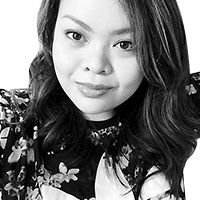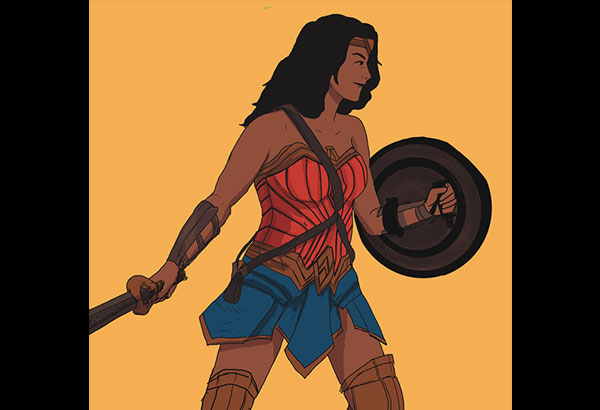REVIEW:What Wonder Woman says about women


It’s not only women who deserve to see heroes they can actually relate to and aspire to on the big screen, but infinitely more, it is the men who struggle with our place in this world who need it most. Illustration by Rob Cham
I had too small of boobs (sic). That’s a big problem,” Gal Gadot says with her Israeli lilt, with a little laugh followed by a knowing cock of the eyebrow. Gadot says this in a video interview for W magazine as she’s asked about the controversy surrounding her being cast as Wonder Woman. It’s widely discussed that Gadot was not the first choice of director Patty Jenkins, that Jenkins’ heart “sank” upon hearing that Zack Snyder had chosen who would step into those iconic golden boots.
Jenkins added that casting knew better than she did, as she would have been content to cast an American girl instead of the magic that is Gadot. As a result, Jenkins has in her hands a film that made $100.5 million on its opening weekend in North America, bringing its total earnings for a worldwide opening to $223 million. Its global IMAX screenings earned $18.3 million, a record for a DC Comics film that sits behind the then-highly anticipated giant The Dark Knight Rises. Jenkins, whose last directorial effort was 2003’s Monster, starring Charlize Theron with a comparatively paltry budget of $8 million, is suddenly not only the first female director to stand at the helm of a superhero picture, but holds the record for the largest opening weekend Hollywood has ever seen from a female director.
Adding to its box office smash status, the film knocks out a target that not all action films manage to hit: critical acclaim. Rotten Tomatoes has clocked in Wonder Woman at 93 precent “fresh,” with a consensus saying, “Thrilling, earnest, and buoyed by Gal Gadot’s charismatic performance, Wonder Woman succeeds in spectacular fashion.” Warner Bros. distribution chief Jeff Goldstein, remarks, “There’s something iconic about Diana and the story of Wonder Woman that’s hitting the zeitgeist perfectly.”
How we talk about women
Truer words have never been spoken, as we reach a point of history where it feels as though all progress made in the last century has regressed massively. A man standing at the head of the world’s biggest economy, Donald Trump, was elected despite his leering comments about “grabbing women by the pussy.” Locally, we are subject to leaders who make rape jokes offhandedly, whose rape jokes are defended by people like the Justice Secretary, and whose cohorts in Congress will spend a thorough amount of time looking through a fellow female senator’s supposed sex tape but refuse to follow what the Constitution dictates with regard to instating martial law. We live in a time when women, despite our freedom to vote and seek gainful employment and speak up, are consistently being reduced to stereotypes and compartmentalized into classifications that make us easier to deal with. We are still either the Madonna or the whore, and the in-betweens are very narrow.
What makes Wonder Woman so revolutionary as a film isn’t simply the fact that it shatters any preconceived notions about whether or not a film with a woman at the center will be well-received, but that its success tells us so much about how we depict and talk about women. In so many other films that have women as the central characters, there’s an apologetic overtone simply because its lead is female, and there are so many justifications that have to be made about their respective characters. The struggle, consistently, is how they manage to fit into a world of men and how the glass ceiling can be broken through. But while that reflects the reality of now, the fantastic and possibly equally important thing about Wonder Woman is that it assumes the ceiling has already been smashed, or doesn’t even exist. Diana pays no mind to the fact that this is a world of men that believe women shouldn’t be in the same room; she takes the lead without a sense of superiority over the male sex, and she does what needs to be done because there is no one as qualified as she to do it. Diana isn’t going head to head with the entire class of men, because while she doesn’t disregard their intrinsic value in a given situation, she is already head and shoulders above them all.
Diana, as we know, is not a damsel in distress. She has trained her whole life as a warrior, to be the best on an island of beautifully athletic women who could tear apart any living creature, tip to tail, in 10 seconds flat. While sexy and beautiful, she rarely gives consideration to her looks nor does she allow herself to be reduced to a sexual object, even as men consistently comment on her appearance. At the same time, Diana is a being whose strength is derived from a quality that would naturally be received as soft: she unabashedly fights for love and because of love. She goes as far as to embody love in all its forms — romantic, platonic, and mostly its form in Ancient Greek, called agape, a selfless and sacrificial unconditional love. More than a hard-edged sense of justice and right or retaliation for loss, Diana’s key motivation is the love of mankind and the desire to allow humanity its right to beautiful, peaceful, happy lives. This is a first for any superhero depicted onscreen, male or female.
Likewise, one of her enemies in the film, another female by the name of Doctor Poison, is not sexualized in her depiction either. She isn’t inducted into the Sisterhood of The Traveling Pants but is also not engaged in a catfight. There are no snarky insults made between her and Diana, and each of them plays to their strengths. Someone like Poison would never be so full of herself as to go fist to fist with Diana, but in her own world, she reigns. Poison is feared, and for good reason, because she is evil as she is brilliant, and she gets the job done. It is the same with Diana, and though they stand on polar opposites of the spectrum, their skill and passion are too high to be ignored and overwhelming to all who are in its presence. It's neither because they are women nor is it in spite of them being female; it’s because their sex took a backseat to their actual character.
Beyond the Stereotype
Jenkins, in an interview with Xilla Valentine of Global Grind, says, “I feel absolutely entitled that she should be the center of the movie, and not only that, but she should be the universal character. And this is the biggest change, always only certain kind of people got to be the universal character, saving the world, and everyone else had to be about being a woman, or about being black, or… they could only be about this one thing. Who cares who’s at the center of the movie? Let’s pick all kinds of people, because all kinds of people can be the universal character. And that’s kind of how we approached it, like I just made a movie about a hero… and of course, then, at the end of the day, I see it, and I see that it’s a woman playing that role and that I’m the one that directed it, and I’m so excited if that makes a difference.” That much is clear in how we see Diana, that she wasn’t portrayed as such because she was a woman, but because she was first a hero. And because it was so apparent in this film, it shows us the holes that modern storytelling and social convention have yet to fill. The fact that we discuss Jenkins’ accomplishments in terms of her being a female, the fact that we reduce Gadot to being a former beauty queen when she had also served in the Israeli Armed Forces, the fact that it took 75 years for a cohesive film about a female superhero to be made show us how little progress we’ve made.
The stunning part about this, however, is that it shines a light so brightly on what we are lacking that it does create opportunity and it does show us what is possible. Women can be depicted as both strong and feminine, fierce and vulnerable, and there is no need to categorize them into this “unapologetic” zone where we laud them for acting like men and call it revolutionary. There is space for women to be all the things that have been labeled stereotypically female, which media has constantly bashed for being uncool or undesirable, while bringing to the table each individual human experience that dissolves the stereotype into something more complex.
It’s not only women that deserve to see heroes that they can actually relate to and aspire to on the big screen, but infinitely more, it is the men who struggle with our place in this world who need it most. We cannot underestimate the power of a lasso of truth in this time of fake news, or the tenacity of a woman raising a tank overhead when we are surrounded by political leaders who casually make rape jokes or talk about grabbing women “by the pussy.” We need stories of diversity and of strength and compassion, not simply of women but in these times, particularly so. This needs to be the year that gives birth to more complex, true, and well-rounded female characters, because if a $223-million global revenue within one weekend has told us anything, it’s that there’s a demand for it.
* * *
Tweet the author @gabbietatad.















